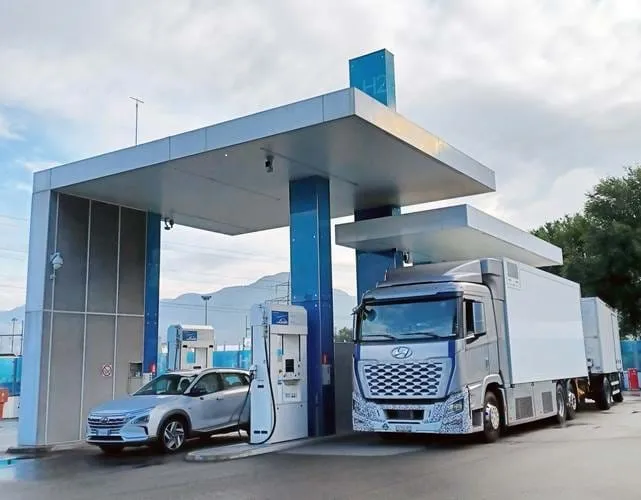The
Fuel cells are used to generate low-emission electricity and heat. Thus far, the adoption of such systems into widespread use has been hindered by their short service life and high price. These factors have been made the key development areas of the INNO-SOFC project, which was launched in September and is funded by the EU and managed by VTT. The target is set to double the service life and halve the cost of fuel cell systems and enable the emergence of commercial applications.
VTT, in collaboration with Elcogen and other European partners and Convion, will develop a 50 kW fuel cell system that will have an efficiency of 60 per cent for electricity production and a total efficiency of 85 per cent. Elcogen will deliver the core of the system, the fuel cells. VTT will act as the project coordinator, supporting the R&D of the companies participating in the project and validating the service life of the system and the cells.
The new fuel cell system will generate normal alternating current and will be able to be used in several different applications. Fuel cells can be used to generate electricity and heat from methane produced by biomass at wastewater treatment and biogas plants. In addition to biogas, the distribution of liquefied natural gas will enable the use of fuel cell systems outside the current gas network.
Compared with competing systems, such as generators powered by a combustion engine, fuel cell systems exhibit a high efficiency level, low emissions, low noise and low vibration levels. Improved efficiency is especially pronounced in applications smaller than 1,000kW in power, in which fuel cells may exhibit efficiency double that of competing technologies and produce CO2 emissions that are correspondingly lower. Other emissions, such as particles, nitrogen oxides and noise, also remain at very low levels.
Other participants in the project include Dutch Energy Matters, Italian ENEA, Dutch ElringKlinger and Forschungszentrum Jülich.
The project, which commenced in September 2015, is scheduled for completion in April 2018.
Next-generation fuel cells ready for low-emission electricity production
The VTT Technical Research Centre of Finland, under the INNO-SOFC project and in collaboration with Convion and Elcogen, is developing a new-generation, long-life fuel cell system offering efficiency higher than that of competing technologies. The project aims to develop new, energy-efficient and commercially viable applications.
November 25, 2015
Read time: 2 mins







